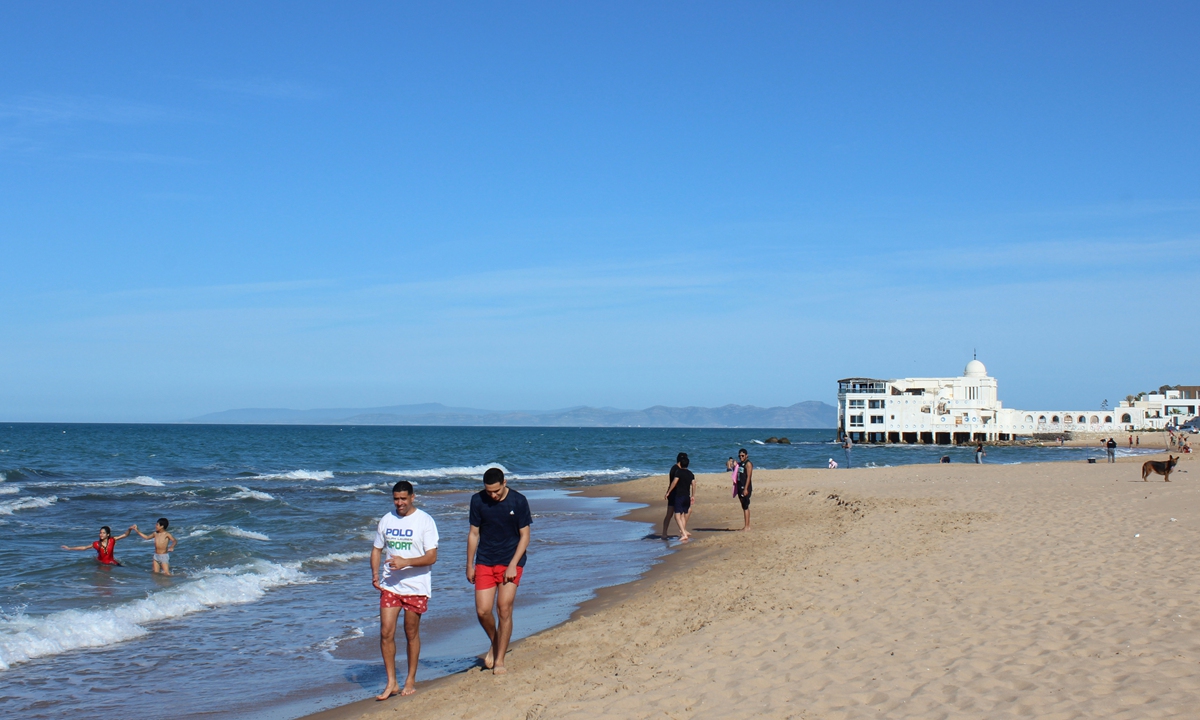Tunisia cracks down with arrests in Italian hazardous waste scandal
Source: AFP Published: 2020/12/22 19:08:39
Tunisia arrested a dozen people including its environment minister Monday in a scandal over hundreds of containers of household waste shipped from Italy to the North African country.

The 282 containers were seized in summer 2020 by Tunisian customs officials in the Mediterranean port city of Sousse. They were declared to be carrying plastic scraps for industrial recycling - but were instead filled with mixed, putrid household waste, which is barred from import under Tunisian law.
The case shines a spotlight on the murky global trade in waste, which has grown despite stricter regulations aimed at preventing rich countries from dumping their hazardous refuse on poorer countries. The containers were imported in two shipments by Tunisian firm Soreplast, which claimed to have government permission to import and recycle industrial plastic scraps.
A copy of Soreplast's import request seen by AFP stated that the company would "temporarily" import the waste "in nonhazardous bales... for sorting, recycling and reexport operations to European territory."
However, the contract Soreplast signed with the Italian firm that sold the refuse, Sviluppo Risorse Ambientali Srl, tasked Soreplast with "recovery of the waste and its subsequent disposal" in Tunisia.
Neither company was available for comment despite numerous efforts to contact them by AFP.
Amid the scandal, Prime Minister Hichem Mechichi sacked the environment minister, Mustapha Aroui, late Sunday.
Twelve people have since been taken into custody, including Aroui and a top ministry official, said Sousse court spokesman Jabeur Ghnimi.
Also detained were officials of the National Waste Recycling Agency, customs service and national environmental protection agency, the owner of a private laboratory and a Tunisian diplomat in Naples.
The owner of Soreplast remains at large, Ghnimi said.
A total of 23 people have been questioned, accused of charges including "use of false documents" and "participation in the prohibited import of hazardous waste," he said.
The global waste trade has been growing as more industrialized and urbanized countries dump their garbage in developing countries. Interpol warned in August that criminal organizations have profited from an "overwhelming" surge in illegal waste shipments, particularly to Asia but also other parts of the world.
The garbage often ends up in countries that are ill-equipped to cope with it and endure heavy pollution when waste is burned and dumped in landfills instead of being recycled.

People visit a beach in La Marsa near Tunis, Tunisia on May 11 Photo: VCG
The 282 containers were seized in summer 2020 by Tunisian customs officials in the Mediterranean port city of Sousse. They were declared to be carrying plastic scraps for industrial recycling - but were instead filled with mixed, putrid household waste, which is barred from import under Tunisian law.
The case shines a spotlight on the murky global trade in waste, which has grown despite stricter regulations aimed at preventing rich countries from dumping their hazardous refuse on poorer countries. The containers were imported in two shipments by Tunisian firm Soreplast, which claimed to have government permission to import and recycle industrial plastic scraps.
A copy of Soreplast's import request seen by AFP stated that the company would "temporarily" import the waste "in nonhazardous bales... for sorting, recycling and reexport operations to European territory."
However, the contract Soreplast signed with the Italian firm that sold the refuse, Sviluppo Risorse Ambientali Srl, tasked Soreplast with "recovery of the waste and its subsequent disposal" in Tunisia.
Neither company was available for comment despite numerous efforts to contact them by AFP.
Amid the scandal, Prime Minister Hichem Mechichi sacked the environment minister, Mustapha Aroui, late Sunday.
Twelve people have since been taken into custody, including Aroui and a top ministry official, said Sousse court spokesman Jabeur Ghnimi.
Also detained were officials of the National Waste Recycling Agency, customs service and national environmental protection agency, the owner of a private laboratory and a Tunisian diplomat in Naples.
The owner of Soreplast remains at large, Ghnimi said.
A total of 23 people have been questioned, accused of charges including "use of false documents" and "participation in the prohibited import of hazardous waste," he said.
The global waste trade has been growing as more industrialized and urbanized countries dump their garbage in developing countries. Interpol warned in August that criminal organizations have profited from an "overwhelming" surge in illegal waste shipments, particularly to Asia but also other parts of the world.
The garbage often ends up in countries that are ill-equipped to cope with it and endure heavy pollution when waste is burned and dumped in landfills instead of being recycled.
Posted in: AFRICA